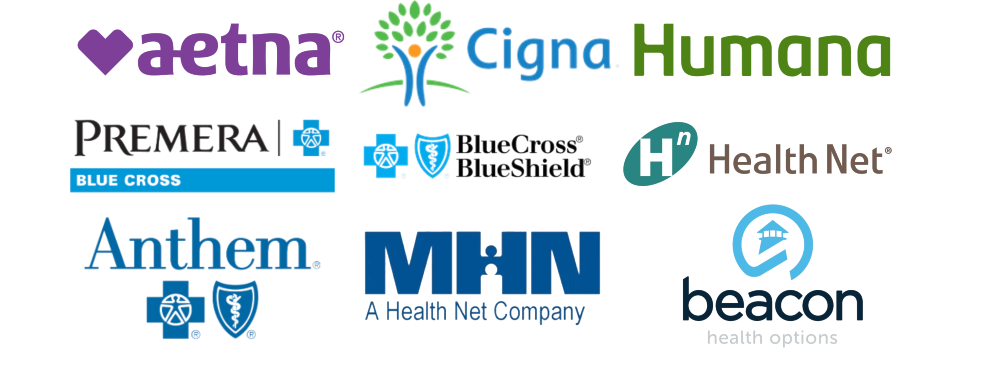Making the decision to get treatment for a drug or alcohol addiction is the best decision you can make to safeguard your mental and physical health. There are many types of medically sanctioned, alternative, and holistic treatments (often available in a single facility) that can help people successfully manage their substance addictions. However, the first step to recovery invariably requires detox. The detoxification process is crucial. Knowing what to expect can help you prepare for this process.
What Is Drug Detox?
If you are addicted to illicit drugs, prescription drugs, or alcohol, you’ll likely need to undergo the detox process. But what exactly is detox and why is it ideal to undergo medical detox? Detox targets the physical dependence associated with substance addiction. During detox, you will be carefully weaned off the substance you’ve been addicted to. Over time, your body grew to ‘need’ the addictive substance you became addicted to. In order to break the body of this need, detox is required.
Medical Detox
Medical or clinically supervised detox is detox that is overseen by a doctor or medical professional. It is the safest way to detox. Why? During detox, withdrawal symptoms are present. These vary depending on the addictive substance in question. For instance, withdrawal from heroin usually involves flu-like symptoms such as nausea and chills.
Medical detox may be offered in both clinical and residential rehabs. The key element is that the process is overseen by healthcare providers. That’s important because withdrawal symptoms can be extremely unpleasant. Withdrawal symptoms are the body’s way of ‘demanding’ the addictive substance. In extreme cases, withdrawal symptoms can even trigger some health emergencies like seizures.
Medical detox is deemed the safest way to detox because doctors can provide treatments to minimize withdrawal symptoms and reduce the risk for those health emergencies. Moreover, if a complication should occur, healthcare providers are available to deal with it rapidly.
How Will I Feel During Detox?
In many cases, a person will begin to experience withdrawal symptoms in mere hours from the last time they used the substance they’re addicted to. Withdrawal symptoms often begin with a mild headache, but the longer the substance is withheld, the worse the symptoms will get. On average, withdrawal symptoms peak between 24 and 48 hours from the last drink or drug use, but this varies from person to person.
There are many factors that will affect the length of time a person spends in detox. For instance, the time frame and overall experience depends on the substance in question, the length of time the individual has been addicted, and the person’s individual chemistry. Most people can complete detox in about a week. Sometimes additional time is needed.
Because the detox process is fraught with withdrawal symptoms and intense cravings to use the substance in question, people feel pretty low during the initial phase of this process. However, as withdrawal symptoms begin to subside, people begin to feel better–often both physically and mentally.
What Withdrawal Symptoms Can I Expect to Experience?

Unfortunately, there’s no way to know with certainty how you’ll feel during detox. That is, you will experience withdrawal symptoms, but those symptoms can vary. For instance, while many people who detox from alcohol may experience a set of symptoms known as DTs (delirium tremens), not everyone does. Of course, there are some common symptoms of withdrawal that many clients do experience.
Depending on the substance in question, you may experience any of the following:
- Headache
- Muscle aches
- Insomnia
- Sweating
- Chills
- Tremors
- Nausea / vomiting
- Anxiety
- Depression
- Irritability
- Changes in appetite
- Cravings for the substance of abuse
Healthcare providers can provide treatments and medications that can help reduce the intensity of these symptoms. Rehab providers want clients to feel as comfortable as possible so they can get the mental and physical rest their body needs to heal.
Why Is Detox Integral To Recovery?
Until a person goes through detox, they will find it difficult to downright impossible to focus on other treatments. Moreover, other treatments are vital to the recovery process just as detox is. Detox targets the person’s physical dependence, but only the physical dependence. People who are addicted to drugs and alcohol are also dependent on the substance mentally and even behaviorally.
The most successful treatment programs target each aspect of the addiction. Unless the individual goes through detox and other treatments to address other parts of their condition, relapse is likely. Unfortunately, many clients have felt so good after completing detox that they don’t continue their treatment. That’s a huge mistake as relapse rates affirm. Detox is only part of the recovery equation.
What Is the Detox Experience Like at Shahida’s Place?

Shahida’s Place features a calm, residential setting where clients can immerse themselves in their recovery journey. A doctor is available to oversee any clients who are undergoing detox. Staff will do their utmost to ensure each client’s comfort during this challenging phase of treatment. Clients who are undergoing detox are welcome and encouraged to attend group treatment sessions, but their presence isn’t required during detox.
While undergoing detox at our addiction treatment center, you can get the support you need while you detox in a safe and caring setting. As you begin to feel better and complete the process, you can transition to your next phase of treatment.
What Happens After Detox Is Complete?
When detox is complete, you may still feel lingering withdrawal symptoms. This is normal; however, expect these symptoms to be far less debilitating than when your withdrawal peaked. Many clients may experience continued cravings to use. As you begin your treatment, you’ll learn to manage triggers like your cravings, which will diminish in time.
During your next phase of addiction treatment, you’ll learn to identify all of your triggers–those elements that led you to abuse drugs or alcohol in the first place. You’ll learn to change the thoughts and behaviors that are associated with your substance abuse disorder.
Recovery is a process that is begun with detox. Few people look forward to experiencing withdrawal symptoms, but remember that these symptoms do not last. On the other side of detox is improved health and a brighter future. If you’re interested in undergoing detox in a safe and caring environment, contact Shahida’s Place in Corona, CA to learn more.







